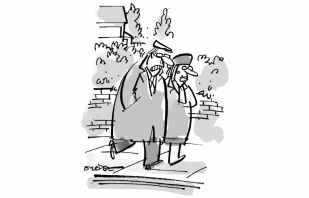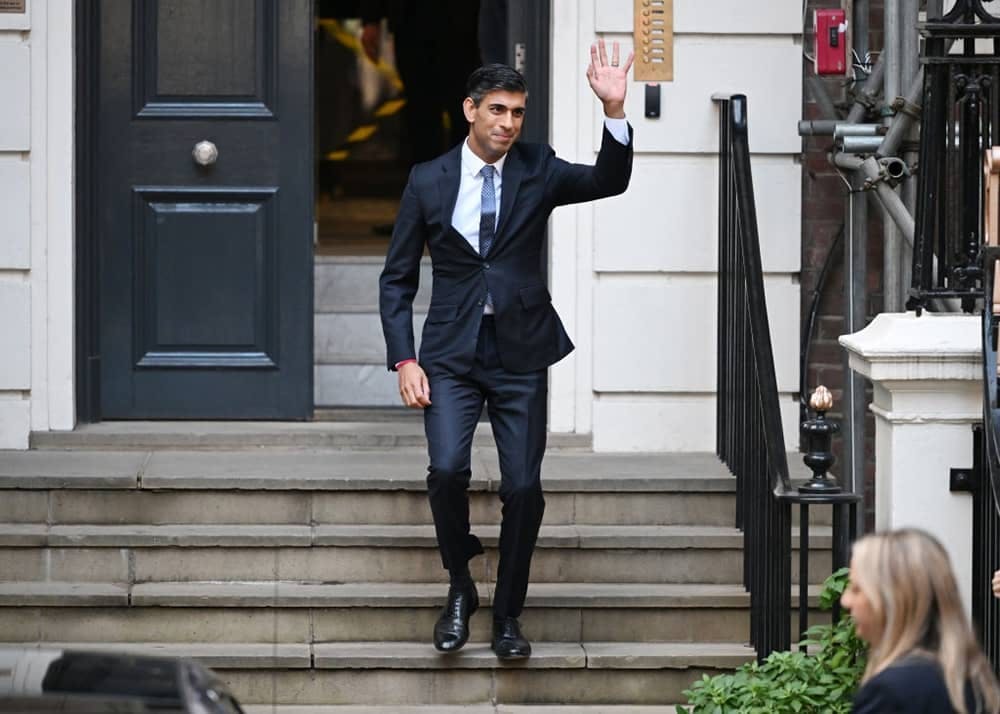I have seen it suggested that because Rishi Sunak is a Hindu, it would be wrong for him to have any role in the appointment of bishops in the Church of England. This is a non-sequitur. So long as the C of E remains the church by law established, its main appointments must, in formal terms, be made by the Supreme Governor of that church, the monarch, ‘on advice’. That advice, though informed by the views of the hierarchy, must be tendered by the Prime Minister. Gordon Brown, when prime minister, tried to shuffle off these responsibilities, perhaps feeling rather Presbyterian about them; but this does not work. If the Church of England has the privileges of Establishment, it must permit an exterior eye on whom it appoints. And there is no evidence that Anglican PMs make better ecclesiastical appointments than non-Anglicans. Indeed, I suspect the reverse may be the case, since a strong Anglican will tend to have his/her preferred church faction. Perhaps a Hindu will be less biased, having no dogma in the fight.

In his interesting new book, God in Number 10, which I helped launch on Wednesday, Mark Vickers writes about the ‘personal faith’ of prime ministers from Balfour to Blair. Fascinatingly few have been serious, orthodox Anglicans – perhaps only Baldwin, Macmillan, Douglas-Home, Heath and Theresa May. Of these, probably only Macmillan was deeply interested in church affairs and theology. ‘I try to talk to him about religion,’ he complained of the Archbishop of Canterbury, Geoffrey Fisher, ‘but he seems quite uninterested, and reverts all the time to politics.’ The great majority of the 20th-century prime ministers covered – Balfour, Asquith, Lloyd George, Bonar Law, Chamberlain, Churchill, Attlee, Eden, Wilson, Callaghan – cannot unequivocally be described as Christians. The prime ministers of the present century – Blair, Brown, Cameron, May, Johnson – are all declaredly Christian (the last even being, by characteristically unusual means, our only Catholic prime minister). The possible exception is Liz Truss, who has an Anglican heritage but says she is not a religious person. Odd, in our godless age, that almost all are believers. And now we have an observant Hindu. With God, all things are possible.
I fear I annoyed Boris Johnson by writing in last Saturday’s Daily Telegraph that he should not stand for the leadership. I do realise that there is no one more unwelcome than the ‘candid friend’: life is bad enough as it is without your friends telling you the truth. But I think I was right. The real puzzle is that Boris ever thought he should return to power so quickly. I wonder if it was something to do with being on holiday, far away in the Dominican Republic. He may have been captured by the FOMO that often assails busy people when abroad and the romance of such a return – Napoleon slipping out of Elba. In his departure speech, Boris invoked the memory of Cincinnatus. But returning from holiday in a hot place rarely endears a politician to British voters – think of Jim Callaghan arriving bronzed from Guadeloupe during the Winter of Discontent. Cincinnatus was summoned from his plough, not his sun-lounger.
Persephone Books is an excellent publisher – a slightly more genteel version of Virago, rediscovering interesting books, mainly novels, by women, and reprinting them with lovely endpapers. We possess a dozen of its volumes. It has a book club, with a newsletter. Its autumn edition, out before the Sunak victory, attacks Boris as the name which ‘will never, ever cross our lips’; mocks ‘Two Soups Truss’ (snobbishly so-called ‘because of the little bob she gave the late Queen’) and asks ‘Why does she do something so socially divisive as to reduce tax rather than impose it?’ ‘But there is one bright spot,’ it continues: ‘the recent bounce in the polls for Labour, and the speeches by Keir Starmer, Angela Rayner and Rachel Reeves.’ Why do people on the left assume customers will want to hear their political views? Imagine a conservative fiction publisher trying to inflict his party-political opinions on his book-buyers, and you will see the chasm.
My occasional correspondent the frontline doctor sends me his latest: ‘Our hospitals are no longer hospitals, but vast, inefficient nursing homes masquerading as hospitals. The emergency Covid policy of shifting medically fit but frail patients out to care home/nursing home beds (known as “Discharge To Assess” or D2A) has been wound down and this, combined with staff shortages, means things are getting rather ugly. To squeeze in more capacity, my acute medical team was gifted a windowless room in A&E as a “temporary annexe” with 7 beds for supposedly medically stable patients. There was no increase in doctors to see them, and no continuity of care. The annexe has now been open for months. The poor, bedbound octogenarians become thoroughly delirious. We beg the bed managers to shut it down, but they respond, “Where else can they go? It’s better than a corridor.” The bed manager who badgered me for the fifth time that day to discharge more people explained, “There is nowhere to send the frail patients, we have lost most of our D2A beds, and even if the funding was reinstated, there are fewer carers, care home beds and nursing home beds than before.” The nursing home business is becoming unprofitable, so the owners convert the properties into flats and sell up… We are in a bed situation I have not seen in my career, and it is October. Add to that the looming nursing strike, and the prospect of a junior doctors’ strike, and it really does feel as if it will collapse. When I voice concerns to more militant colleagues that striking would be unethical, their response is scathing: “Look around you, patients are suffering here and now. That won’t change if you keep going along with it.” It is becoming harder to disagree.’







Comments